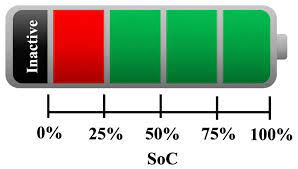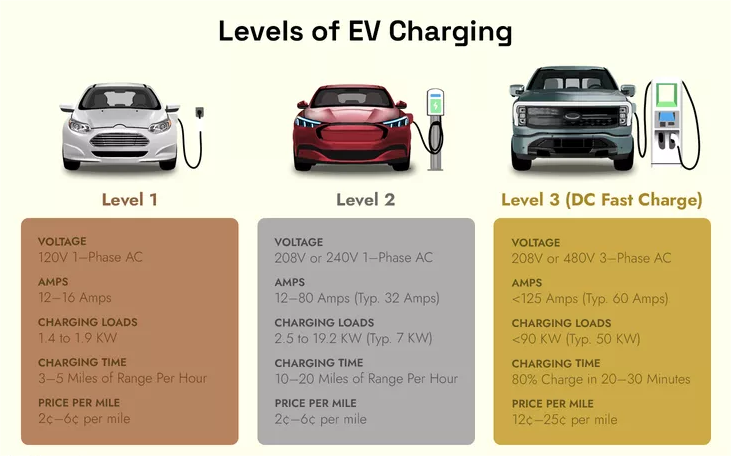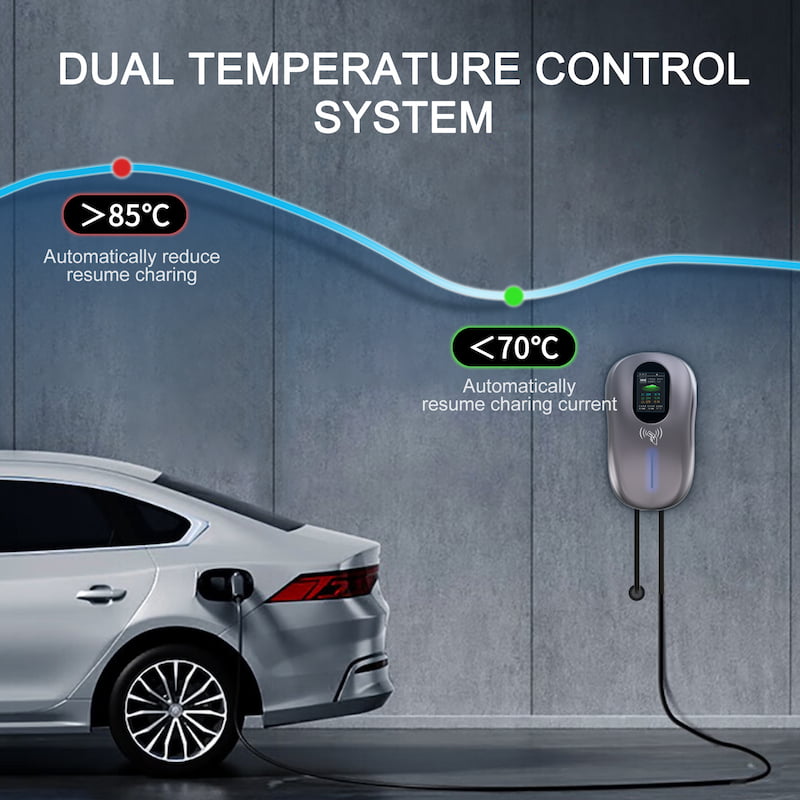The shift towards electric vehicles (EVs) is gaining momentum worldwide, with an ever-increasing number of drivers opting for cleaner and more sustainable transportation. As the EV landscape evolves, one critical aspect that concerns EV owners is charging speed. Faster charging not only enhances convenience but also contributes to the widespread adoption of electric vehicles.
In this comprehensive guide, we will delve into the factors that affect your EV charging speed. By understanding these elements, you can make informed decisions to optimize your EV charging experience and get back on the road faster.
Key Factors That Can Influence EV Charging Speed
The speed at which an electric vehicle (EV) charges can be impacted by several factors. Understanding these factors can help EV owners optimize their charging experience. Here are the key factors that can influence EV charging speed.
Charging Station Power Level (kW)
The power rating of the charging station you use has a direct impact on charging speed. Stations with higher power levels can deliver more electricity to your EV per unit of time, resulting in faster charging. For example, a Level 2 charger with a 7 kW power rating will charge your EV faster than a Level 1 charger with a 2 kW rating.
Battery State of Charge (SoC)

The current charge level of your EV’s battery plays a crucial role in charging speed. Charging is typically faster when the battery has a lower state of charge (i.e., closer to empty). As the battery approaches a full charge, the charging rate often decreases to protect the battery’s health.
Charging Voltage and Current

Charging stations provide different levels of voltage and current. The most common levels are:
Level 1 (120V): Provides a slow charge and is often used at home.
Level 2 (240V): Offers faster charging and is commonly found at home and in public charging stations.
DC Fast Charging (typically 400V and higher)
Provides rapid charging and is usually available at dedicated fast-charging stations. It can significantly reduce charging time.
Charging Station Compatibility
The compatibility between your EV and the charging station can impact charging speed. Different EV models and charging stations may use various connectors and charging standards. Ensuring that your EV is compatible with the station you’re using is essential for efficient charging.
Temperature and Environmental Conditions
Temperature conditions, especially extreme cold or hot weather, can affect the efficiency and speed of EV charging. Very cold temperatures can reduce the battery’s efficiency, while high temperatures may lead to thermal throttling, slowing down the charging rate to protect the battery.
Avoid Potential Issues and Ensure Efficient Charging
To protect and optimize your electric vehicle’s (EV) charging speed, you can take several proactive measures and precautions. Here’s how you can avoid potential issues and ensure efficient charging.
Choose the Right Charging Station
Select a charging station with an appropriate power level (kW) for your needs. If you want faster charging at home, consider installing a Level 2 charger (typically 240V) instead of relying solely on Level 1 (120V) charging.
When using public charging stations, look for stations with higher power ratings for faster charging. Be aware that DC fast chargers offer the quickest charging speeds for compatible EVs.
Monitor Your Battery State of Charge (SoC)
Avoid regularly charging your EV when the battery is nearly full. Charging is typically slower when the battery is close to its capacity. Try to keep your battery within the recommended SoC range for efficient charging.
Charge During Optimal Temperature Conditions

Extreme temperatures can affect charging speed and battery health. Whenever possible, charge your EV in moderate temperature conditions.
If you must charge in extreme heat or cold, consider preconditioning your battery before charging to bring it to a more favorable temperature. Our charging station fetures intelligent dual temperature system, that means when the degree up to 85℃, the charger automatically reduce resume charging, if lower to 70℃, that will resume charging current automatically.
Check Charging Station Compatibility
Ensure that your EV is compatible with the charging station you plan to use. Different EV models may require specific connectors or charging standards. Verify compatibility in advance to avoid any delays.
Maintain Your Battery
Keep your EV’s battery well-maintained, adhering to manufacturer recommendations for maintenance and charging practices. Regularly servicing your EV can help ensure that it charges efficiently.
Avoid frequently charging your EV to 100% capacity unless necessary. Most EVs charge faster when the battery is below 80% SoC.
Plan Your Charging Stops
When embarking on a longer trip, plan your charging stops strategically. Aim to charge when your battery’s SoC is lower, as charging speeds are typically faster at lower SoC levels.
Use mapping apps and EV charging networks to find the most convenient and available charging stations along your route.
Upgrade Your Home Charging Setup
If you often rely on home charging, consider upgrading to a Level 2 charging station for faster and more convenient charging at home.
Install an appropriate electrical circuit to support your chosen charging station’s power level.
Use Smart Charging Features
Take advantage of any smart charging features or apps provided by GREENC’S charging station, our EV charger can be builded charging plan as you expect, or setting charging time in advance, These tools can help you schedule charging during off-peak hours for cost savings and grid optimization.
Conclusion
In conclusion, the speed at which your electric vehicle charges is influenced by a complex interplay of factors, from the state of your battery to the quality of the charging infrastructure. By understanding these variables and making informed choices, you can maximize the efficiency of your EV charging experience.
As the EV charging infrastructure continues to expand and technology advances, we can expect charging speeds to improve even further. Stay informed, keep an eye on the latest developments in EV charging, and enjoy the benefits of faster, more convenient electric vehicle charging. Embrace the electric revolution and drive towards a sustainable future, one fast charge at a time.







